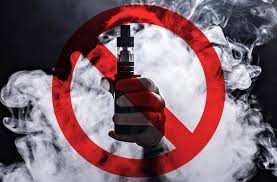You’ve probably seen ads on TV or heard them on the radio warning about how many people have died or become seriously ill from vaping.
Through these reports, we’ve learned that nicotine can harm areas of the brain responsible for attention and learning. This means that many kids who vape have a harder time processing schoolwork or even focusing on everyday tasks.
Nicotine can also affect mood and increase the risk of developing mood disorders. While some say it makes them feel better, the reality is that it only provides temporary relief, and over time, it can actually cause mood swings and make things worse.
Vaping can lead to serious health issues, including cancer. The chemicals found in e-cigarettes and vape pens—specifically nicotine—can damage your health. Studies on mice have shown that inhaling e-cigarette aerosol can inhibit DNA repair and reduce the production of DNA repair proteins in the lungs.
These findings strongly suggest that nicotine can be converted into harmful substances, like NNK (a known carcinogen), that damage DNA and increase the risk of cancer.
Vaping also causes lung problems. Just like smoking, vaping can damage your lungs over time, and that damage is permanent. Your lungs contain about 500 million tiny air sacs called alveoli, which help absorb oxygen and release carbon dioxide when you breathe. Smoking destroys these air sacs by killing the cells that line them. Vaping causes similar damage: the particles you inhale can irritate your lungs and cause inflammation, leading to scarring and narrowing of the airways.
Researchers still don’t fully understand the long-term effects of vaping on the lungs, but they are continuing to study it.
These are just a few of the ways that vaping affects kids—both mentally and physically. It’s clear that the risks are serious, and the damage can be long-lasting.

































Kylie Fisher • Dec 4, 2024 at 9:37 am
A lot of people vape because they think it makes them cool. it doesn’t. If you vape I’m just gonna think that you’re immature and don’t realize how much your hurting yourself and those around you. My sister got into vaping it kills me every time I remember she does it.
-A sixth grader.